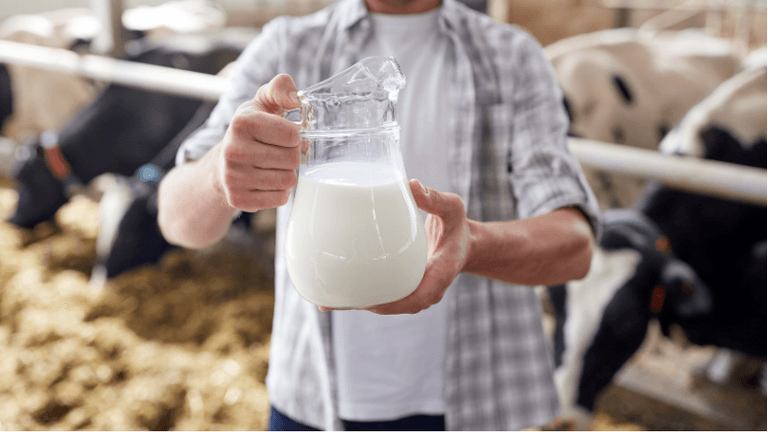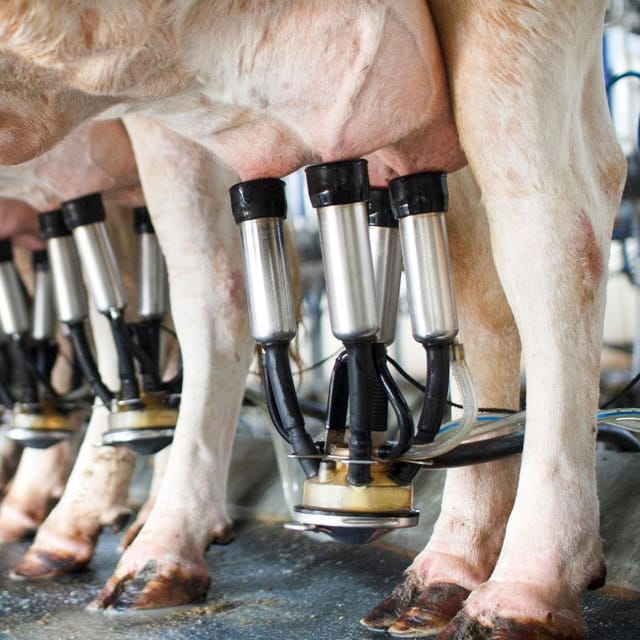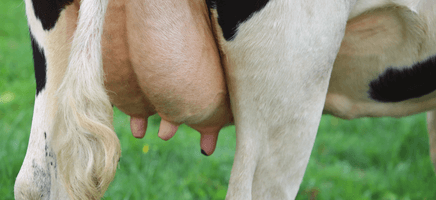
Optimizing Milk Yield
Milk yield is of paramount importance in dairy production, serving as a critical factor in both the prosperity of dairy farmers and the overall health of cows. Prioritizing and optimizing milk yield requires a comprehensive approach that emphasizes strategies to maintain udder health and improve dairy herd productivity.
In the quest for sustainable and healthy livestock farming practices, the focus has shifted towards non-antibiotic feed additives that promote optimal milk yield in dairy cattle. Among the natural alternatives gaining prominence are yeast, milk thistle, and betaine, each with unique properties contributing to the overall well-being of the animals and ensuring a steady milk supply.

Harnessing the Power of Nature for Optimal Milk Yield
There are several approaches based on natural ingredients that support milk yield.
Yeast, a single-celled fungus, has been used for centuries in various fermentation processes. In recent years, it has emerged as a powerful, non-antibiotic feed additive for dairy cattle. Yeast promotes a healthy rumen environment by improving digestion and nutrient absorption.
Its ability to enhance fiber breakdown ensures that cows efficiently extract nutrients from their feed, ultimately leading to increased milk production. In addition, yeast supplementation has been linked to improved immune function, reducing the risk of infections and diseases that can affect milk yield.
There are several approaches based on natural ingredients that support milk yield.
Yeast, a single-celled fungus, has been used for centuries in various fermentation processes. In recent years, it has emerged as a powerful, non-antibiotic feed additive for dairy cattle. Yeast promotes a healthy rumen environment by improving digestion and nutrient absorption. Its ability to enhance fiber breakdown ensures that cows efficiently extract nutrients from their feed, ultimately leading to increased milk production. In addition, yeast supplementation has been linked to improved immune function, reducing the risk of infections and diseases that can affect milk yield.
Milk thistle, known for its liver-protective properties, has found a place in the dairy industry for its potential to support milk production. The active ingredient in milk thistle, silymarin, is a potent antioxidant that protects the liver from oxidative stress. A healthy liver is critical for efficient metabolism and nutrient utilization in dairy cows. By incorporating milk thistle into the diet, farmers can help maintain liver health and ensure that cows can process nutrients effectively, resulting in increased milk yield.
Betaine, a naturally occurring compound found in various plants, has gained attention for its beneficial effects on dairy cows. When used as a non-antibiotic feed additive, betaine has been shown to improve nutrient utilization and energy metabolism. This results in increased feed efficiency and consequently higher milk production. In addition, betaine helps maintain osmotic balance within the cells, contributing to the overall well-being of the animals and supporting their ability to produce milk sustainably.
The shift to non-antibiotic feed additives is driven by the desire for sustainable and ethical farming practices. Unlike antibiotics, these natural supplements pose minimal risks of antimicrobial resistance and meet consumer preferences for products with fewer chemical residues. By prioritizing animal health and well-being, farmers can simultaneously meet market demands for high-quality dairy products and contribute to the development of sustainable and responsible agricultural practices.
MilQ, the sophisticated mix: Coated sylimarin and a smart combo for high performers.
